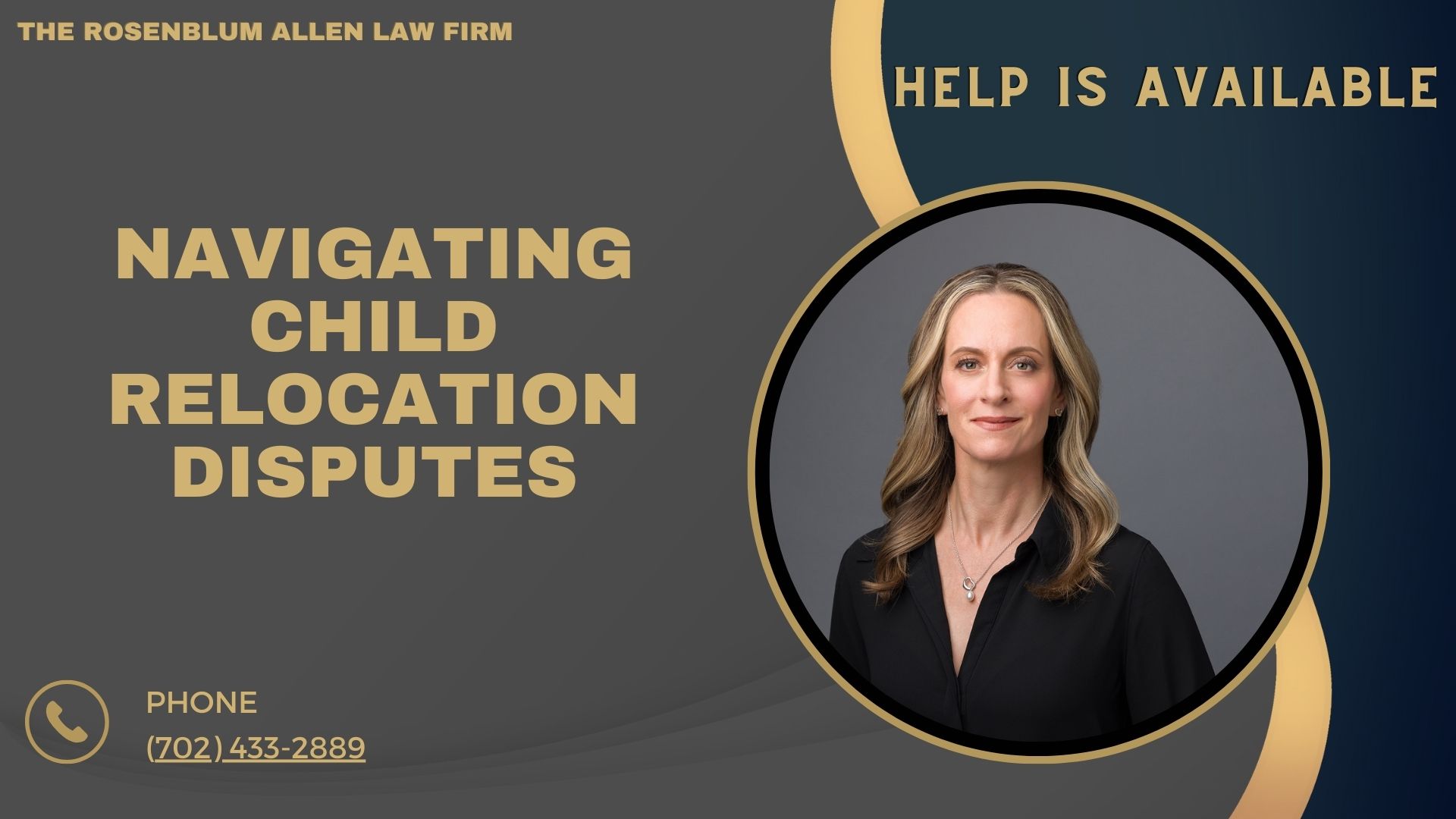Child relocation disputes can be emotionally taxing and legally complex in family law. When a parent seeks to move with their child, this often starts a series of legal processes. It also raises many issues to consider. This article provides detailed guidance to parents. It helps them navigate the complexities of child relocation disputes. Parents can make informed choices. They do this by knowing the laws. They also know the factors that affect relocation and the available strategies. They should focus on the well-being of their children.

Legal Considerations in Child Relocation Disputes
Custody Arrangements and Parental Rights
Types of Custody: Parents may have legal, physical, joint, or sole custody arrangements, each with its implications for relocation.
Parental Rights and Responsibilities: Understanding the rights and responsibilities associated with custody is essential for assessing relocation options.
Factors Impacting Relocation Decisions
Best Interests of the Child Standard: Courts typically prioritize the child’s best interests when deciding on relocation disputes.
Reason for Relocation: The motive behind the move, such as career opportunities or family reasons, can influence legal outcomes.
Impact on Child-Parent Relationships: Courts assess how relocation may affect the child’s relationship with both parents.
Educational Opportunities and Support System: The quality of education and available support networks in the new location are crucial considerations.
Consideration of the Child’s Preferences (Age-Appropriate): Depending on the child’s age and maturity, their preferences may be considered in relocation decisions.
Legal Procedures and Requirements
Filing Petitions and Notifications
Initiating the Relocation Process: The parent intending to relocate typically initiates the process by filing a petition with the court.
Providing Notice to the Other Parent: Legal requirements mandate providing formal Notice to the non-relocating parent.
Legal Documentation Required: Various documents, such as proposed parenting plans and reasons for relocation, need to be submitted to the court.
Mediation and Negotiation
Alternative Dispute Resolution Methods: Mediation and negotiation allow parents to resolve disputes outside court.
Negotiating Parenting Plans: Parents can collaborate on crafting plans that accommodate the relocation while preserving parental rights.
Mediation Process and Benefits: Mediation sessions facilitated by neutral third parties can help parents reach mutually agreeable solutions.
Court Proceedings and Hearings
Legal Representation in Court: Both parties are entitled to legal representation during court proceedings.
Presenting Evidence and Witnesses: Each parent may present evidence and call witnesses to support their case.
Judicial Decision Making: Ultimately, the court will decide based on the evidence presented and the child’s best interests.

Strategies for Resolving Disputes
When faced with a child relocation dispute, parents have many strategies. They can use them to navigate the process with little conflict. It will not disrupt their child’s life.
Cooperative Co-Parenting Strategies
Collaborative Communication: Maintaining open and respectful communication with the other parent can facilitate smoother negotiations.
Joint Decision-Making: Involving both parents in decision-making regarding the relocation can foster a sense of cooperation and shared responsibility.
Creating Parenting Agreements: Drafting comprehensive parenting agreements that address relocation concerns can provide clarity and structure to the process.
Legal Representation and Advocacy
Importance of Experienced Family Law Attorneys: Seeking the guidance of knowledgeable family law attorneys can ensure that parents understand their rights and legal options.
Building a Strong Legal Case: Gathering relevant evidence and documentation to support one’s case is essential for presenting a compelling argument in court.
Protecting Parental Rights and Child’s Best Interests: It is crucial to advocate for the child’s well-being and ensure that their best interests remain paramount throughout the legal proceedings.
Alternative Dispute Resolution Options
Collaborative Law: Collaborative law allows parents to work with their attorneys to reach mutually beneficial agreements outside court.
Mediation Services: A trained mediator can facilitate productive discussions and assist parents in finding common ground.
Arbitration: In cases where mediation fails to yield a resolution, arbitration provides a more formal process for resolving disputes with the assistance of a neutral third party.

Breaking It All Down
Navigating child relocation disputes is hard. But, parents can reduce conflict. They can focus on their child’s well-being with the right approach and resources. By understanding the legal issues, parents can explore dispute resolution options. They can also seek professional help. This will help them confidently navigate this complex terrain. Remember, the goal is to keep the child’s best interests first. This is key even amid the turmoil of relocation disputes. Stay informed, stay proactive, and remember that you are not alone.

Frequently Asked Questions
What are the different types of custody arrangements?
There are various custody arrangements, including legal, physical, joint, and sole custody. Legal custody involves decision-making authority, while physical custody determines where the child resides. Joint custody entails shared responsibility, whereas sole custody grants one parent exclusive rights.
How do courts determine the best interests of the child?
Courts focus on the child’s well-being. They do this by considering factors. These include the reason for moving. Moving affects relationships, school options, and the child’s preferences. The goal is to create a stable and supportive environment. It is good for the child’s happiness and development.
What steps are involved in initiating the relocation process?
To start the move, you usually file a petition with the court. You also inform the other parent formally. You must submit legal documents. They include proposed parenting plans and reasons for relocation.
What is mediation, and how can it help in resolving disputes?
Mediation involves discussions. They are between parents with the help of a neutral third party. It provides a platform for exploring solutions outside of court. It fosters cooperation and reduces conflict.
Why is legal representation important in child relocation disputes?
You need experienced family law attorneys for legal representation. They are crucial for understanding rights and navigating the legal system’s complexities. They also advocate for the child’s best interests. Attorneys help build a solid case to support their client’s position.
What are some alternative dispute resolution options?
These methods are collaborative law and arbitration. They offer parents new ways to resolve disputes. These approaches focus on collaboration. They can lead to friendlier outcomes than courts do.
How can parents focus on their child's well-being during relocation disputes?
Parents can focus on their child’s well-being. They can do this by keeping open communication. They should consider the child’s preferences, where appropriate. They should also focus on cooperative co-parenting strategies. Seeking professional guidance. Also, exploring other dispute resolution options can help. It can make the process smoother.

Additional Resources for You
Don’t forget, in addition to the valuable information provided here, our lead attorney, Molly Rosenblum Allen, Esq, has created several resources to assist you in your time of need:
- Las Vegas Custody Attorney: Effective legal representation for child custody matters in Las Vegas.
- Fathers Rights: Resources and guidance for fathers navigating custody and parental rights.
- Supervised Visitation: Information about supervised visitation services and legal requirements.
- Changing Custody Agreement: Assistance with modifying existing custody arrangements to better suit your needs.
- Grandparents Rights Nevada: Legal information and support for grandparents seeking visitation or custody rights.
- Long Distance Co Parenting: Tips and strategies for effective co-parenting when living long-distance from your child.
- How a Mother Can Lose a Custody Battle: Insight into common mistakes mothers make during custody disputes and how to avoid them.
- Custody Battle Tips for Nevadans: Helpful tips and advice for navigating a custody battle in Nevada.
- What Not To Say In Child Custody Mediation: Guidance on what to avoid saying during child custody mediation sessions.
- How Much is a Custody Lawyer: Information about the costs associated with hiring a custody lawyer and factors that may impact fees.
- Types of Custody in Las Vegas: Overview of the different types of custody arrangements recognized in Las Vegas.
- Nevada Child Custody Laws: Detailed information about child custody laws and regulations specific to Nevada.

Outside Resources for You
Here are some offsite resources related to the content that you may find useful:
American Bar Association (ABA): The ABA offers a wealth of resources on family law, including articles, guides, and webinars, to help individuals navigate legal issues related to child relocation and custody disputes.
FindLaw: FindLaw provides comprehensive legal information and resources, including articles, case summaries, and lawyer directories, covering various aspects of family law and child custody matters.
Child Welfare Information Gateway: The Child Welfare Information Gateway offers resources and publications on child welfare policies, laws, and practices, including information on child custody and relocation.
National Parents Organization: The National Parents Organization advocates for shared parenting and provides resources and support for parents involved in custody disputes, including information on relocation issues.
Family Law Section of the State Bar of Nevada: The Family Law Section of the State Bar of Nevada offers resources, events, and networking opportunities for legal professionals and individuals seeking information on family law matters in Nevada.
Child Custody Coach: Child Custody Coach provides educational resources, coaching services, and legal forms to help parents navigate child custody and relocation disputes effectively.
National Center for State Courts (NCSC): The NCSC offers research, publications, and resources on family court practices and procedures, including information relevant to child relocation disputes and custody matters.

A Special Message from Our Lead Attorney, Molly Rosenblum Allen, Esq

Thank you for exploring our resources. They cover child relocation disputes and family law. Your dedication to understanding your legal options is commendable. Please reach out if you have more questions or need guidance. Schedule a free consultation by calling (702) 433-2889. I’m here to help you navigate your legal journey.






